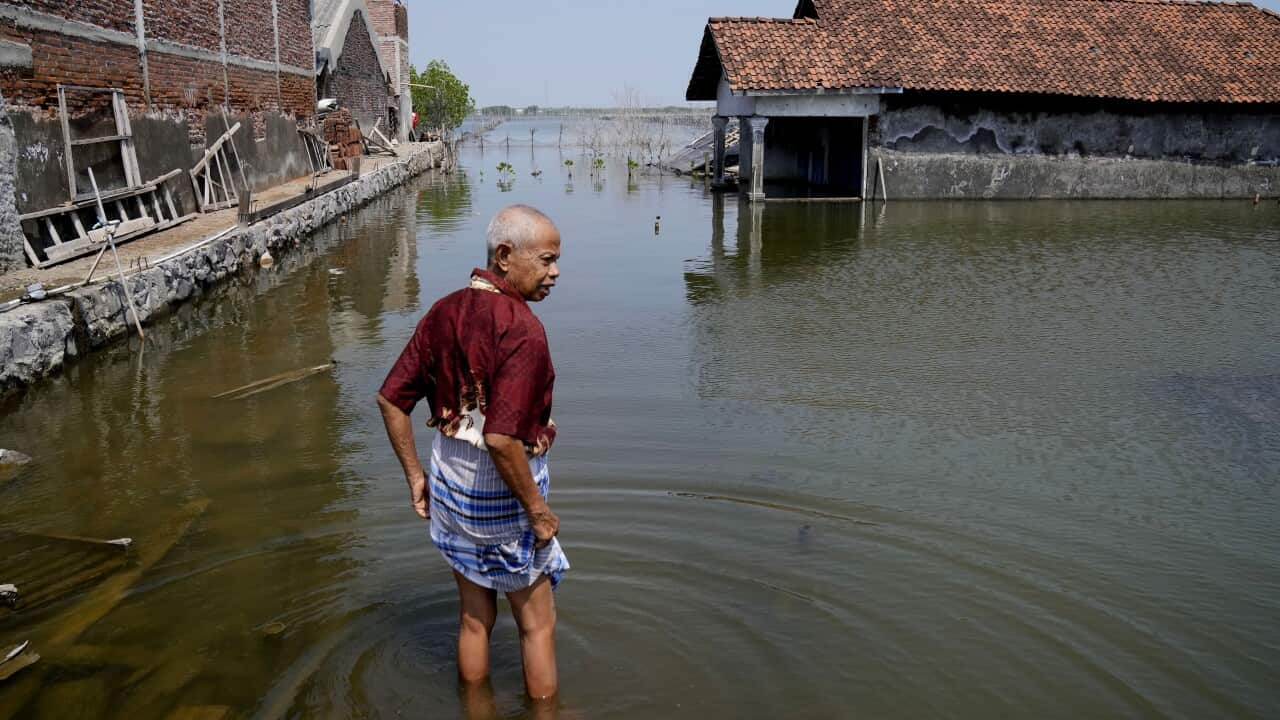Key Points
- The UN's Secretary General has warned the Security Council of rising sea levels.
- He said approximately 900 million people living near water are at high risk.
- The Australia Institute says Australia is already being affected.
The UN has warned of an incoming mass exodus from rising sea levels caused by climate change.
Mega-cities on every continent will face serious impacts, including Lagos, Bangkok, Mumbai, Shanghai, London, Buenos Aires and New York, UN Secretary-General Antonio Guterres told the Security Council.
Mr Guterres said rising waters will cause a new type of conflict where people, companies or countries will be fighting for land.
“We would witness a mass exodus of entire populations on a biblical scale, and we would see ever-fiercer competition for fresh water, land and other resources,” he said.
Mr Guterres said rising sea levels will jeopardise access to water, food and healthcare.
The highest risk is for the approximately 900 million people living in coastal zones at low elevations, which is about one out of every ten people on earth.
"I have seen with my own eyes how people in small island developing states in the Western Pacific are facing sea-rise levels up to four times the global average," Mr Gutteres said.
"In the Caribbean, rising seas have contributed to the devastation of local livelihoods in the tourism and agriculture sectors."
He noted that rising seas are already "forcing" some relocations in Fiji, Vanuatu, the Solomon Islands and elsewhere.

Houses impacted by rising sea levels in the village of Veivatuloa, 35kms west of Suva, Fiji. Source: AAP / Mick Tsikas
"I visited the Torres Strait Islands in 2010 and saw how the sea was eating away people's homes and the homes of their ancestors," she said.
"Cemetery headstones were cracked and strewn along the beach.
"That was 13 years ago, and in that time, the sea in the Torres Strait has risen about 8cm if the modelling the TSRA was doing at the time is correct.
"I hate to think what it looks like now."
The Torres Strait Regional Authority (TSRA) about the effects of climate change on its land.
One of the effects is drinking water becomes contaminated with salt coming from rising sea levels, making it impossible to consume. In turn, that can make contaminated land uninhabitable and force Torres Strait islanders to move to mainland Australia as climate refugees against their will.
Ms Hemming said Australia must stop new coal and gas projects in order to fight rising sea levels.
"Australia is one of the world's biggest fossil fuel exporters and we have a role to play in the absolute chaos that sea level rise is going to cause.
"If we think this is bad, it is going to get much, much worse.
Ms Hemming said the UN's report brings into "stark focus" that stopping new fossil fuel projects in Australia should be the "number one priority if we're serious about addressing climate change".
According to recently released global average sea levels have risen faster since 1900 than over any preceding century in the last 3,000 years.
It warns that, even if global warming is limited to 1.5 degrees, the planet will still see a sizeable rise in sea water levels.
The same research found the burning of fossil fuels is responsible for the "majority" of sea level rise since the late 20th century.











